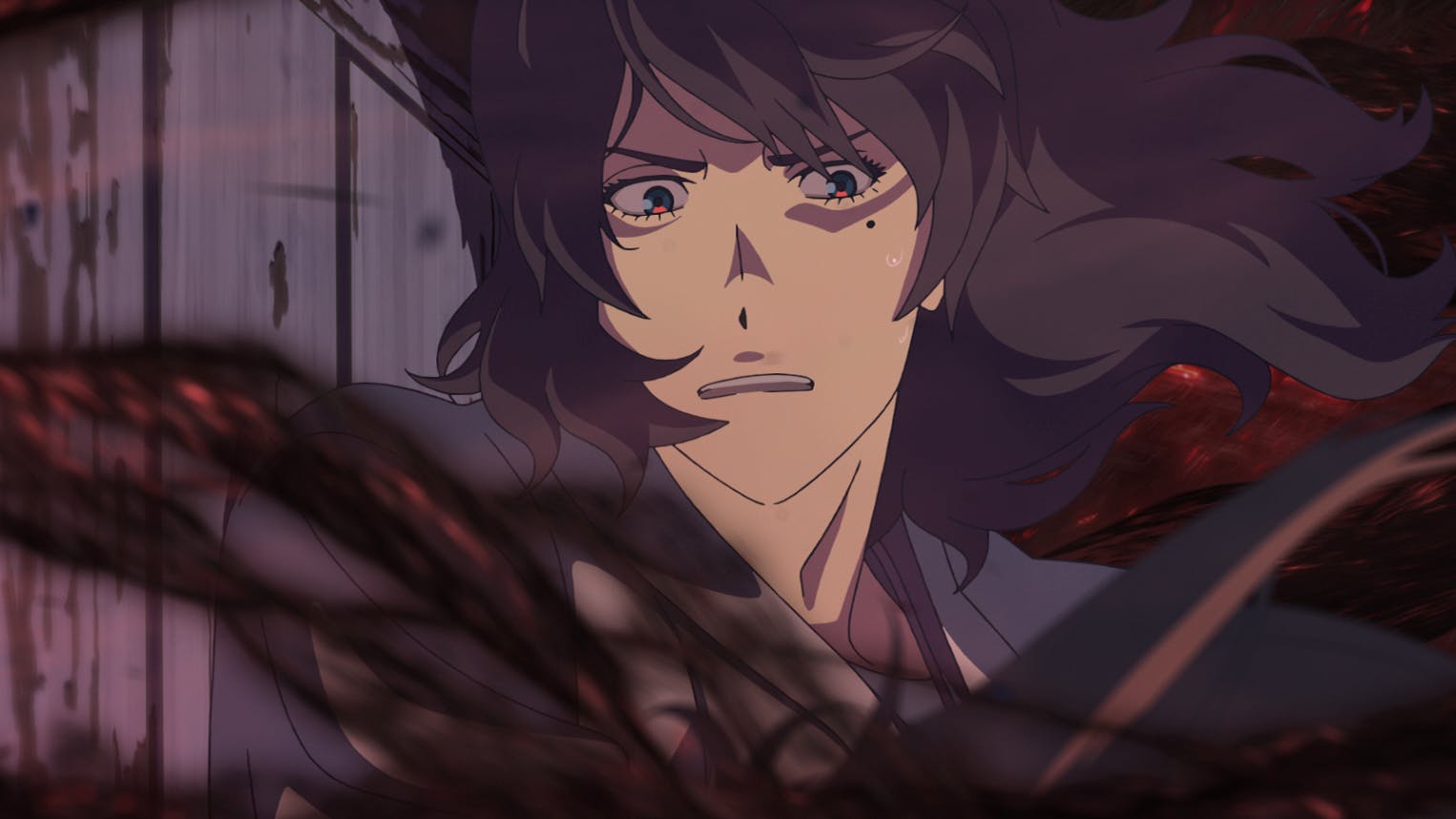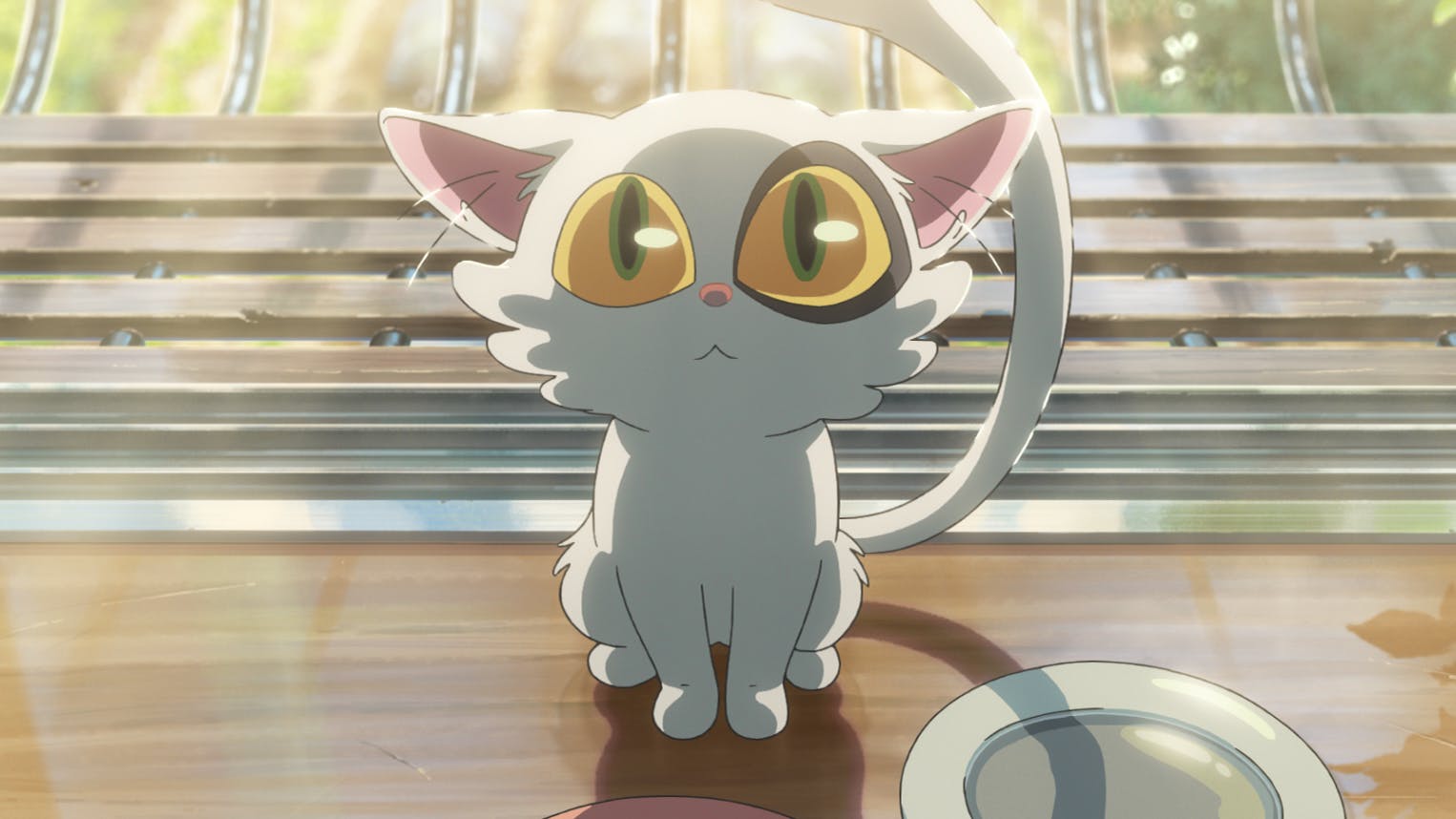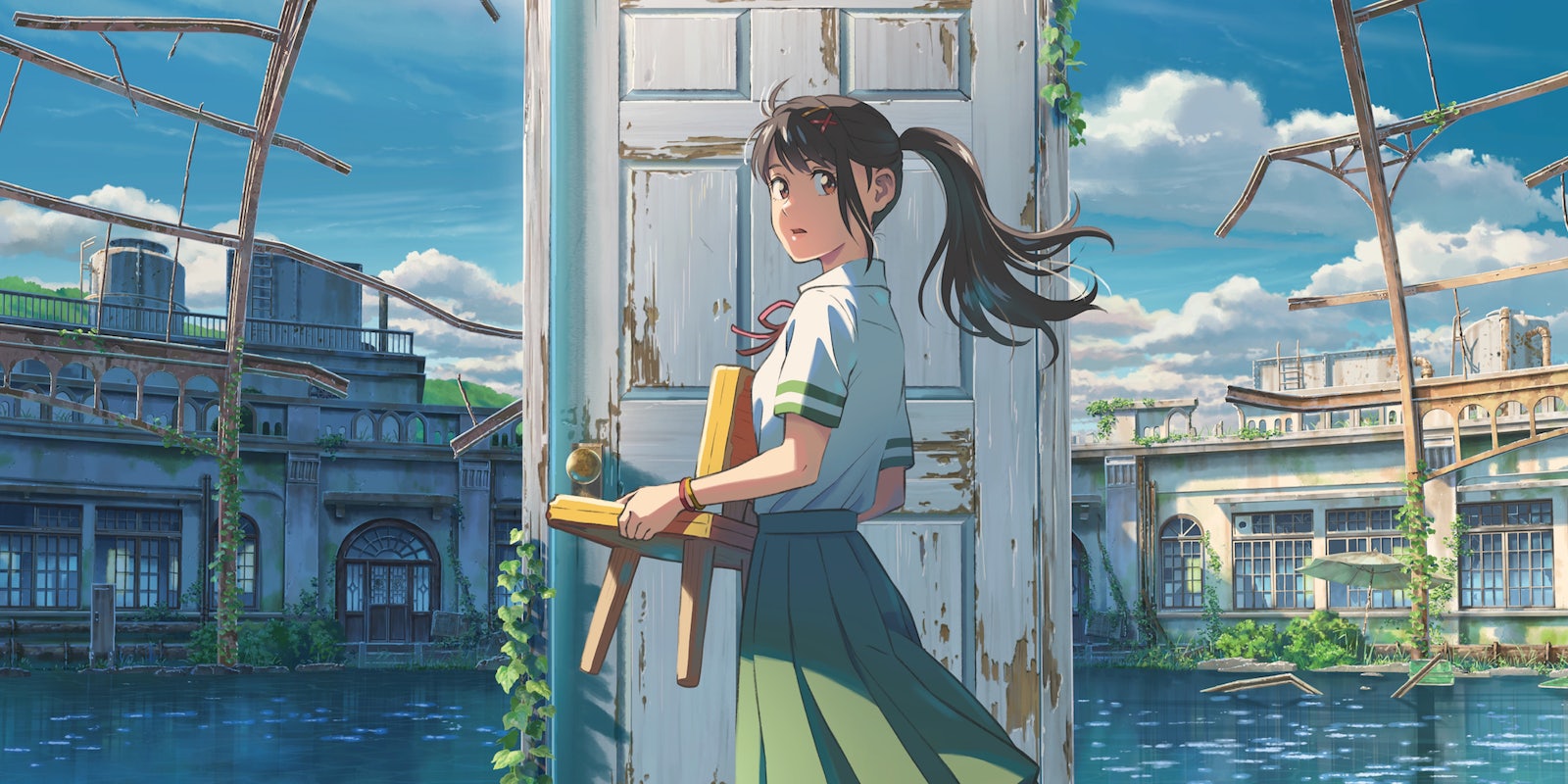In Suzume, director Makoto Shinkai has climate change with a blend of magical realism on his mind. While it’s familiar territory for Shinkai—Your Name involves body swapping as a meteor is destined to crash in the Japanese countryside while Weathering With You features a young girl who can control the weather—he makes the allusions even more apparent in just the first few minutes. The connection between climate change and the seemingly Sysphian effort to block a massive, mysterious entity that can cause earthquakes (and only two people can see) from exiting a door is as blunt as it is effective.
Director: Makoto Shinkai
Release: Theatrical
A 17-year-old girl and a young man travel across Japan to close a series of doors around Japan connecting to another world to stop a supernatural creature only they can see from causing natural disasters. Makoto Shinkai’s latest makes something larger than life feel personal as it explores grief, trauma, and climate change.
It can sometimes be simultaneously too slow and rushed toward its conclusions, but Suzume is more than its parts. Under the guise of a road trip movie, it smartly weaves together Japan’s wrought history with natural disasters and the grief and trauma those disasters leave in its wake (both personal and on a larger scale).
Embodying all of that is high school student Suzume (Nanoka Hara in the subbed version/Nichole Sakura in the dubbed), who lives a quiet and sheltered life in Kyushu (southwestern Japan). She lives with her overprotective aunt Tamaki (Eri Fukatsu/Jennifer Sun Bell), who cared for her after her mother’s death. But having Tamaki taking up that mantle also leaves Suzume raddled with guilt. “Sometimes…I feel like I’ve stolen her most precious years,” she later confides to another character.

On the way to school, Suzume encounters Souta (Hokuto Matsumura/Josh Keaton), a young man from out of town who inquires about a door and ruins nearby. With curiosity getting the better of her, Suzume seeks the ruins for herself and is drawn to the door standing on its own. When opened, vibrant and mesmerizing colors flood the sky, and lush grass is on the other side, but no matter what Suzume does, going through the door keeps her firmly planted in this world. But the move results in a worm (which has a basis in Japanese mythology) threatening to launch a shattering earthquake in Suzume’s town—and worse, nobody can see the worm except for Suzume and Souta, whose family has tried to keep the beast at bay for generations.
Despite Souta’s best efforts to keep Suzume out of keeping the doors closed, a god on the loose, a curse resulting in Souta being turned into a chair, and her desire to rectify her mistake sends the duo traveling all over Japan, which is a lot more complicated than it sounds. Tracking the god, named Daijin (Ann Yamane/Lena Josephine Marano) by the strangers who post pictures of them online as they traverse to each door is easy, but people can’t shake off the sight of a three-legged chair walking, running, or even talking, so Suzume and Souta have to get a little creative.
Suzume and Souta’s efforts to close those doors get a little repetitive. However, it’s hard to argue against the lush visuals each door introduces, including a blend of 2D and 3D animation when the worm twists and looms over an entire city, ready to wipe it out. In closing the doors, Suzume is forced to reckon with the past in a way that she tried to ignore for much of her life; part of the ritual involves imagining the people who used to reside in now-abandoned homes, hotels, schools, and an amusement park.

Japan’s traumatic natural disaster past—especially the Great Japan Earthquake of 1923—is close of mind when the worm threatens Tokyo, and Suzume has a connection to the Tohoku earthquake and tsunami that hit eastern Japan in 2011. In Suzume, Shinkai uses the personal to illustrate how great national tragedies like the deadly earthquakes that hit Japan still shake people to their core. Each time an earthquake warning pops up on everyone’s smartphones, there’s a mix of panic and indifference; for some, those warnings are commonplace.
Some elements feel rushed, but the animation is especially astounding. The emotional weight of Suzume toward the end doesn’t always land, but what follows is among the film’s high points. And while perhaps it might take on too much at times, Suzume works wonders anyway.
Suzume is now playing in theaters.



